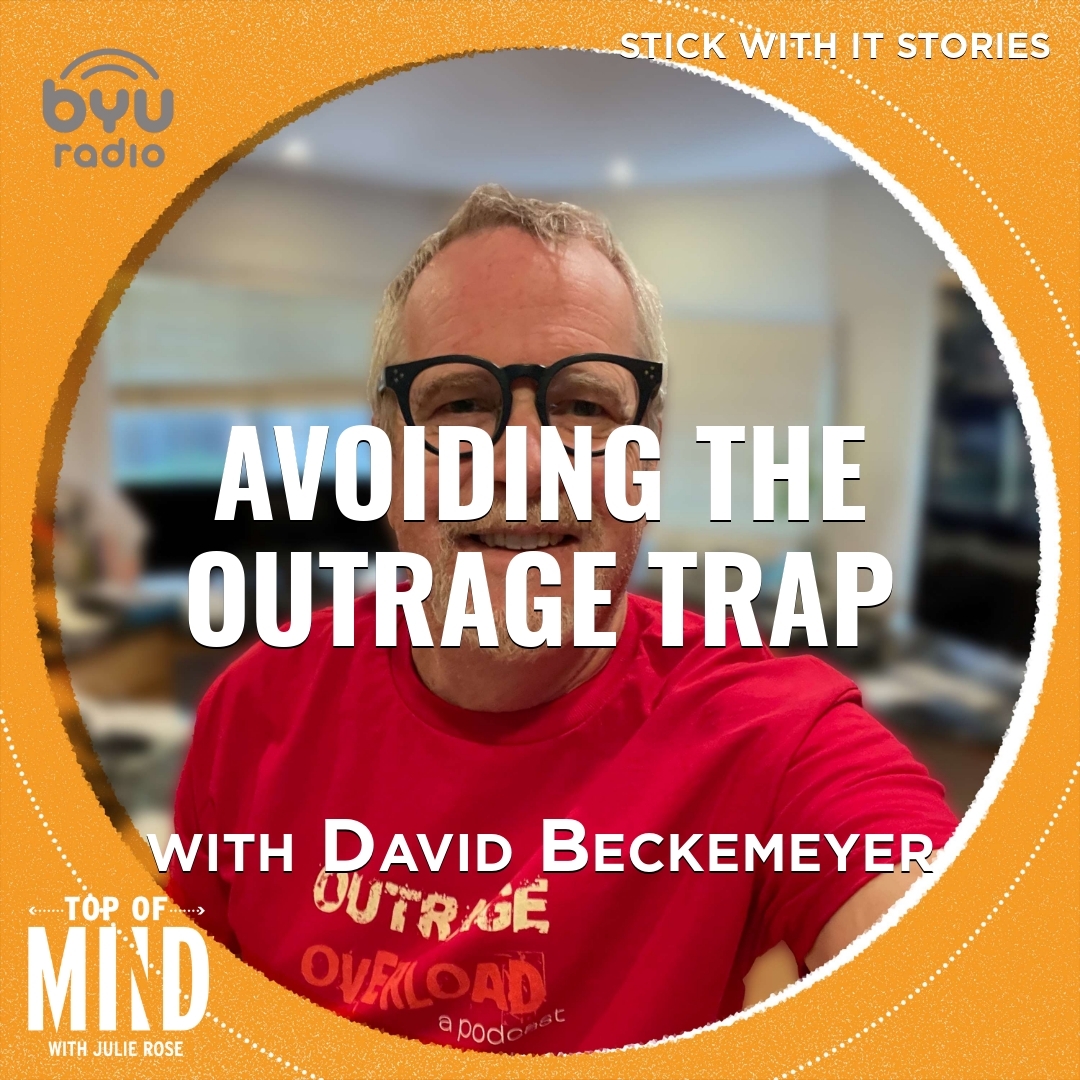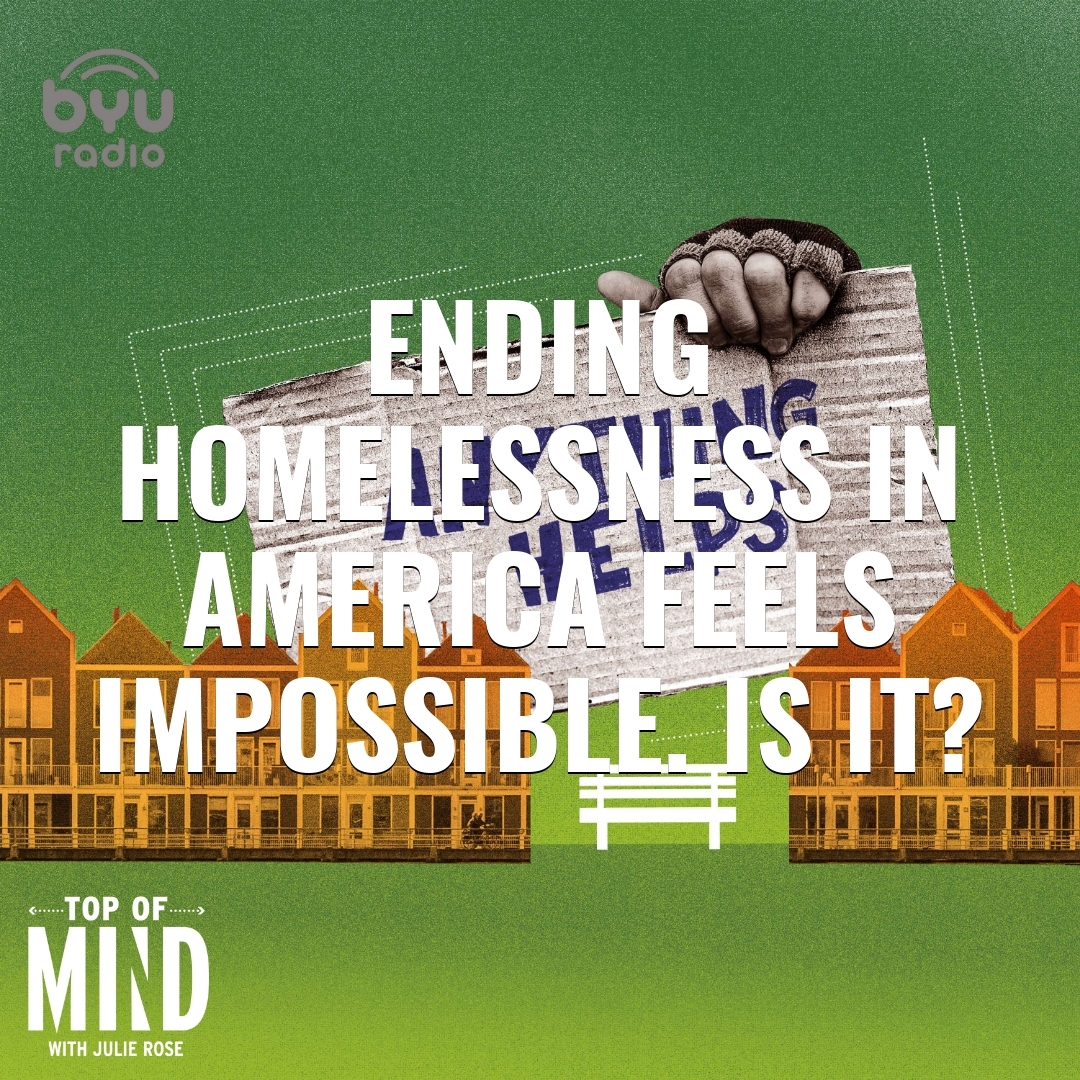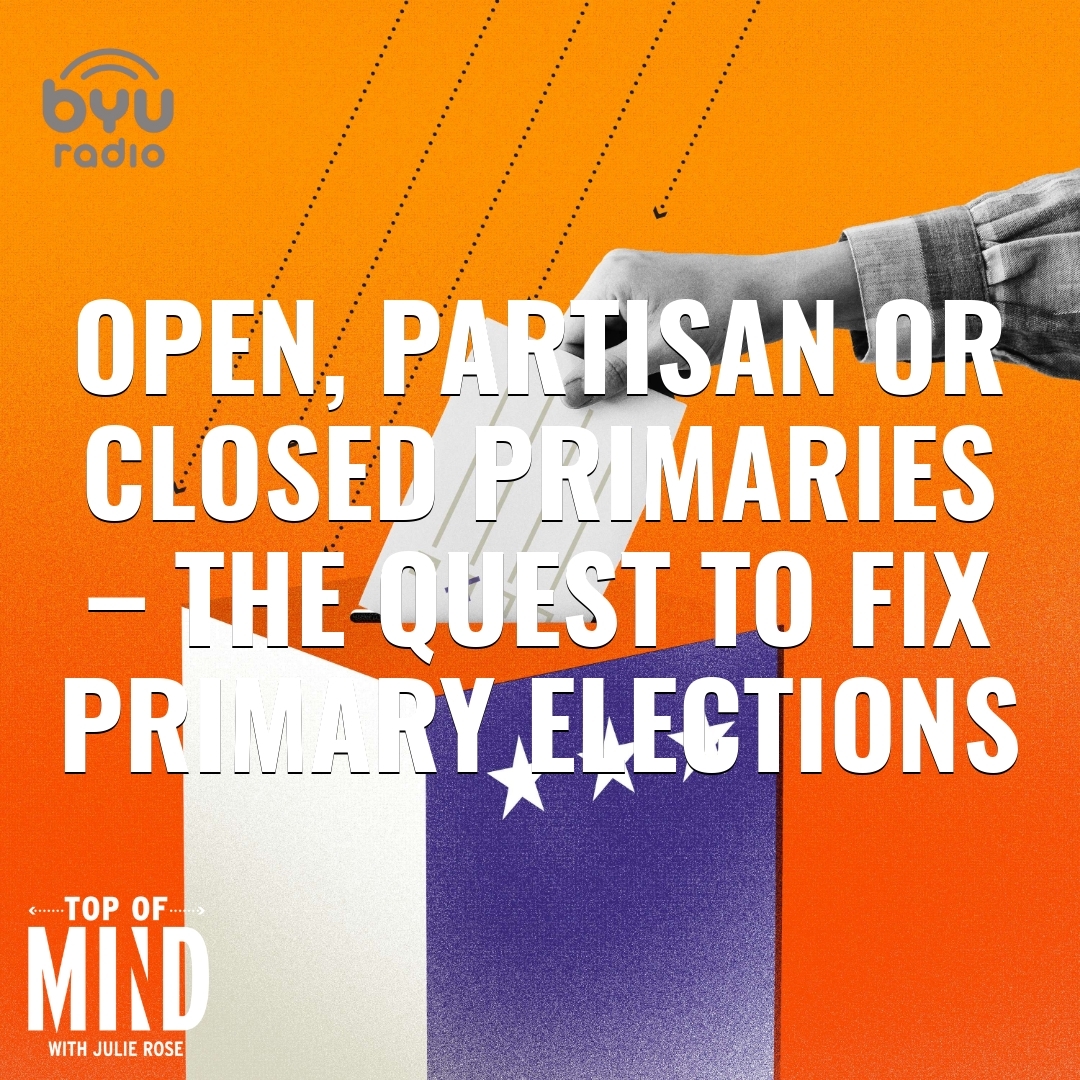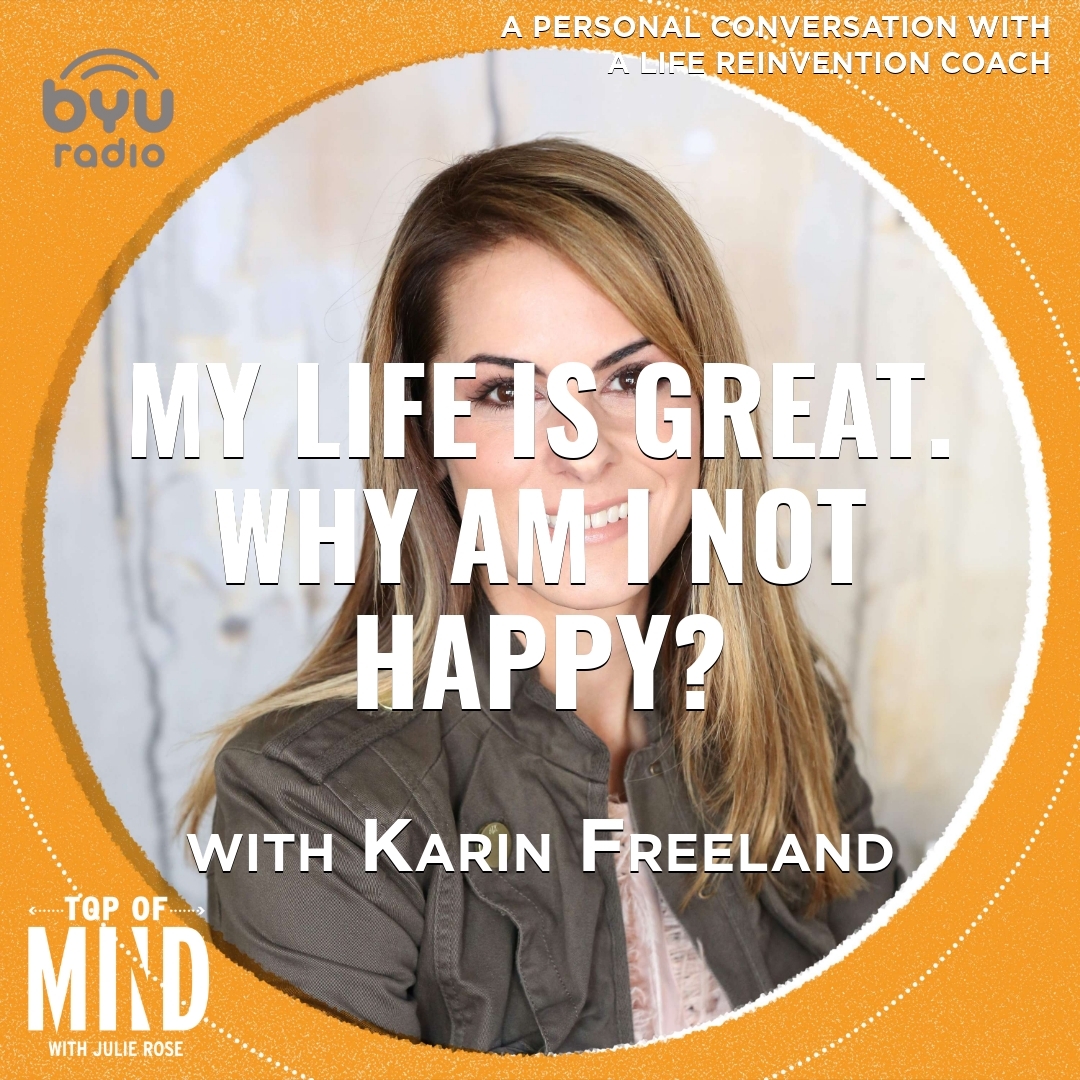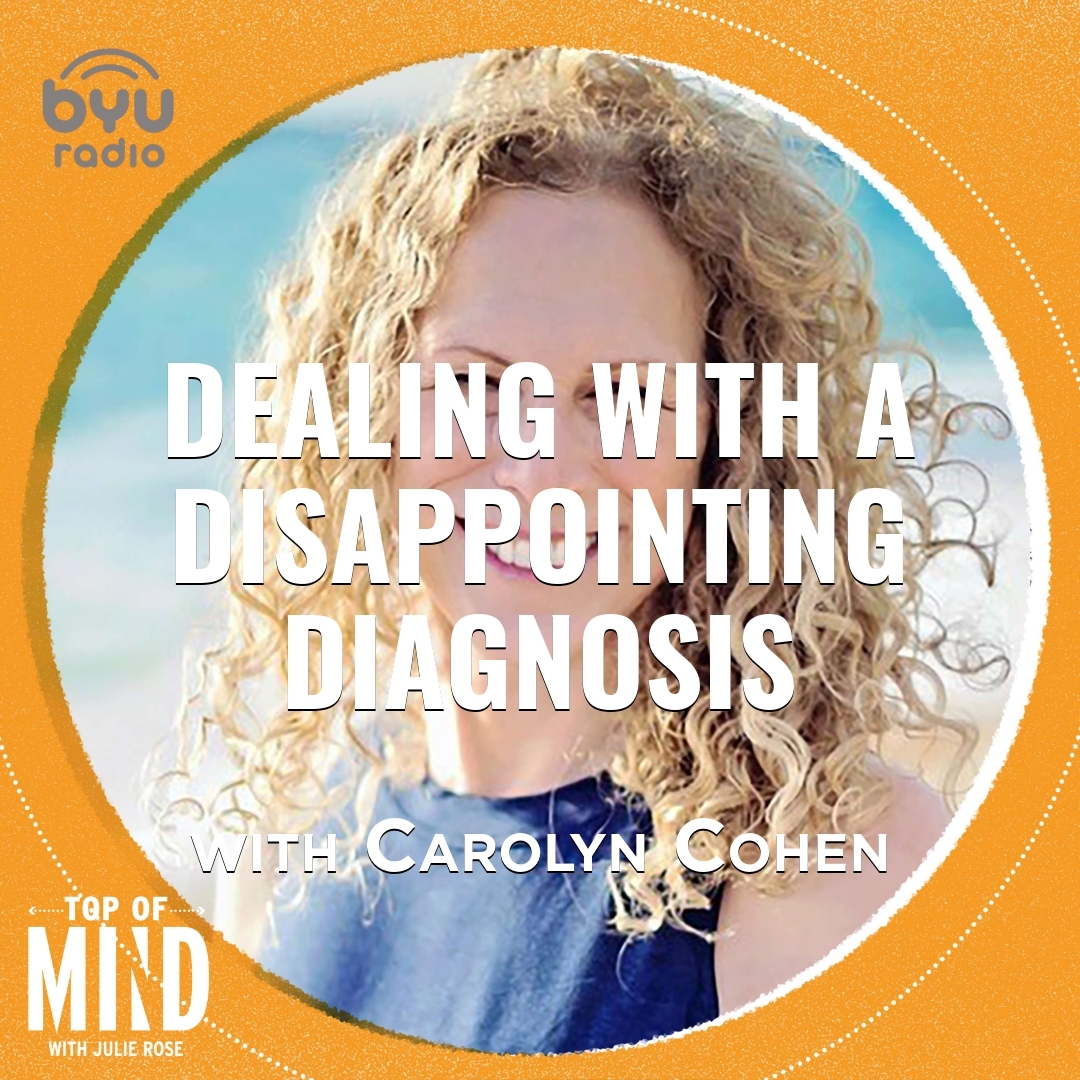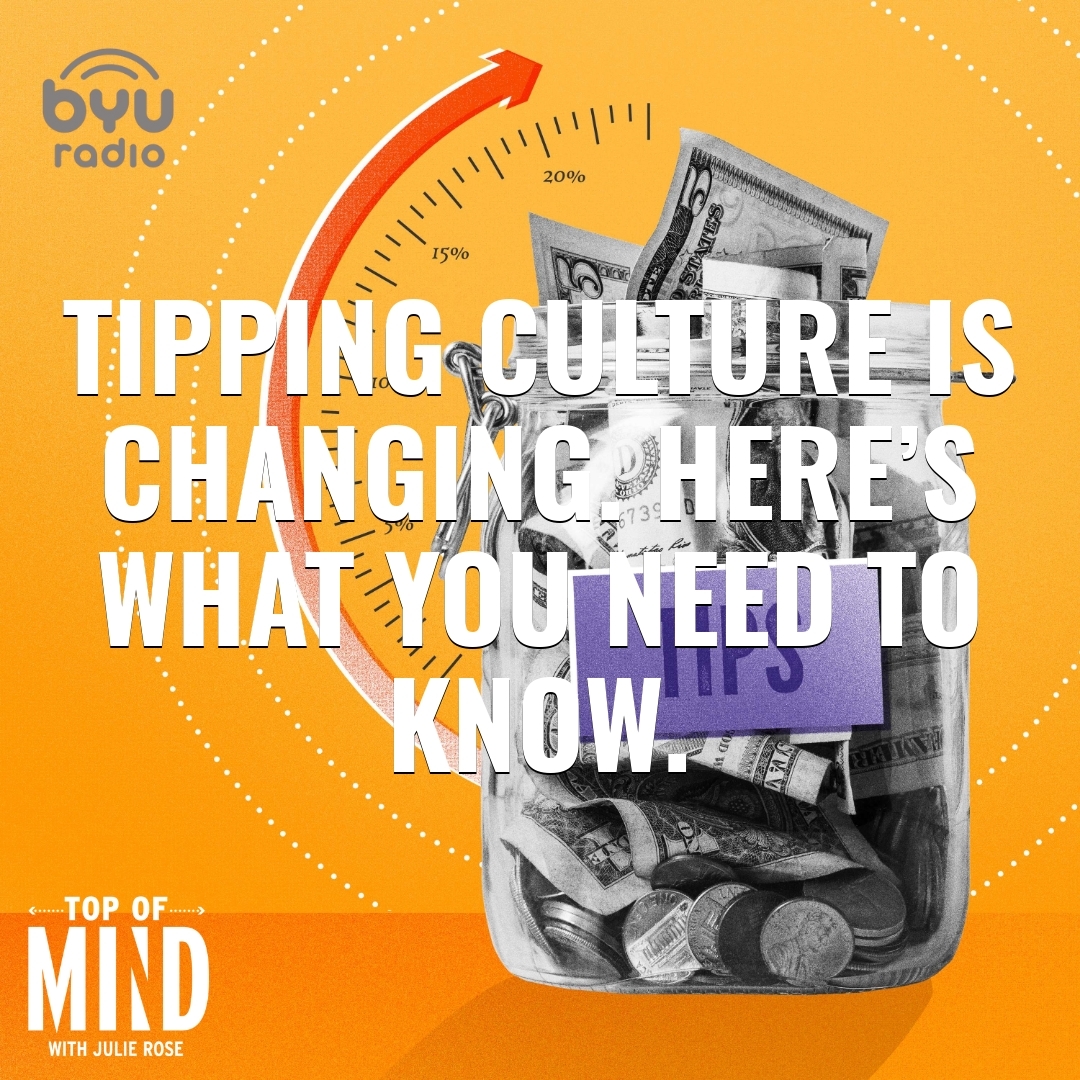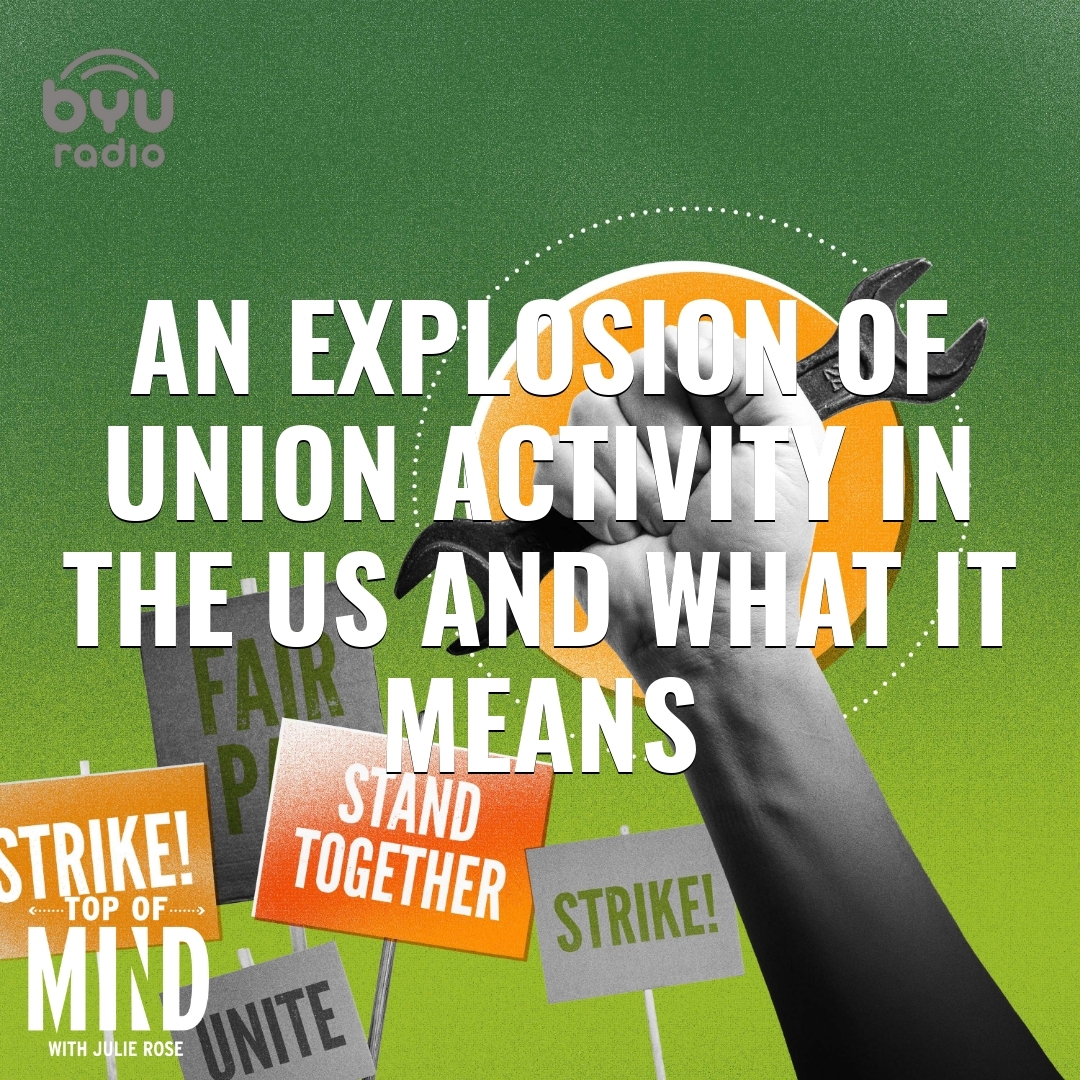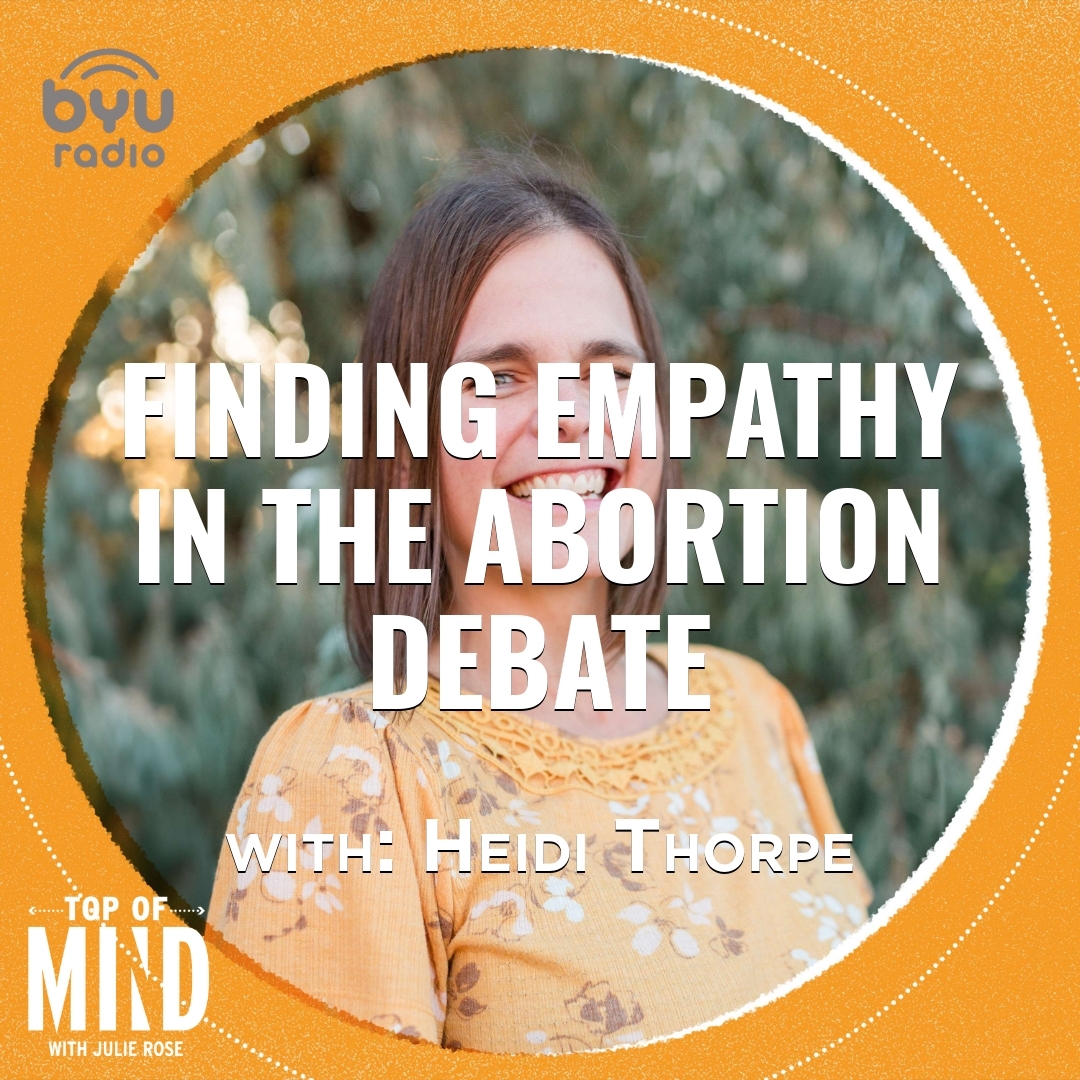Tackling tough topics in a way that will help you feel more empathy and empower you to become a better citizen, kinder neighbor, and more effective advocate. For people who are turned off by the divisive nature of the news, but still want to engage with important issues. Hosted by journalist Julie Rose, Top of Mind is a production of BYUradio.
Our “Stick With It” series on the Top of Mind podcast continues with a story from David Beckemeyer, host of the podcast “Outrage Overload.” Beckemeyer used to spend his time engaging in social media fights. When his son, who also often indulged in heated online discussions, decided to step away from social media, Beckemeyer was prompted to closely examine his own behavior, leading him to make a significant change and delve into why so many of us fall into the outrage trap.
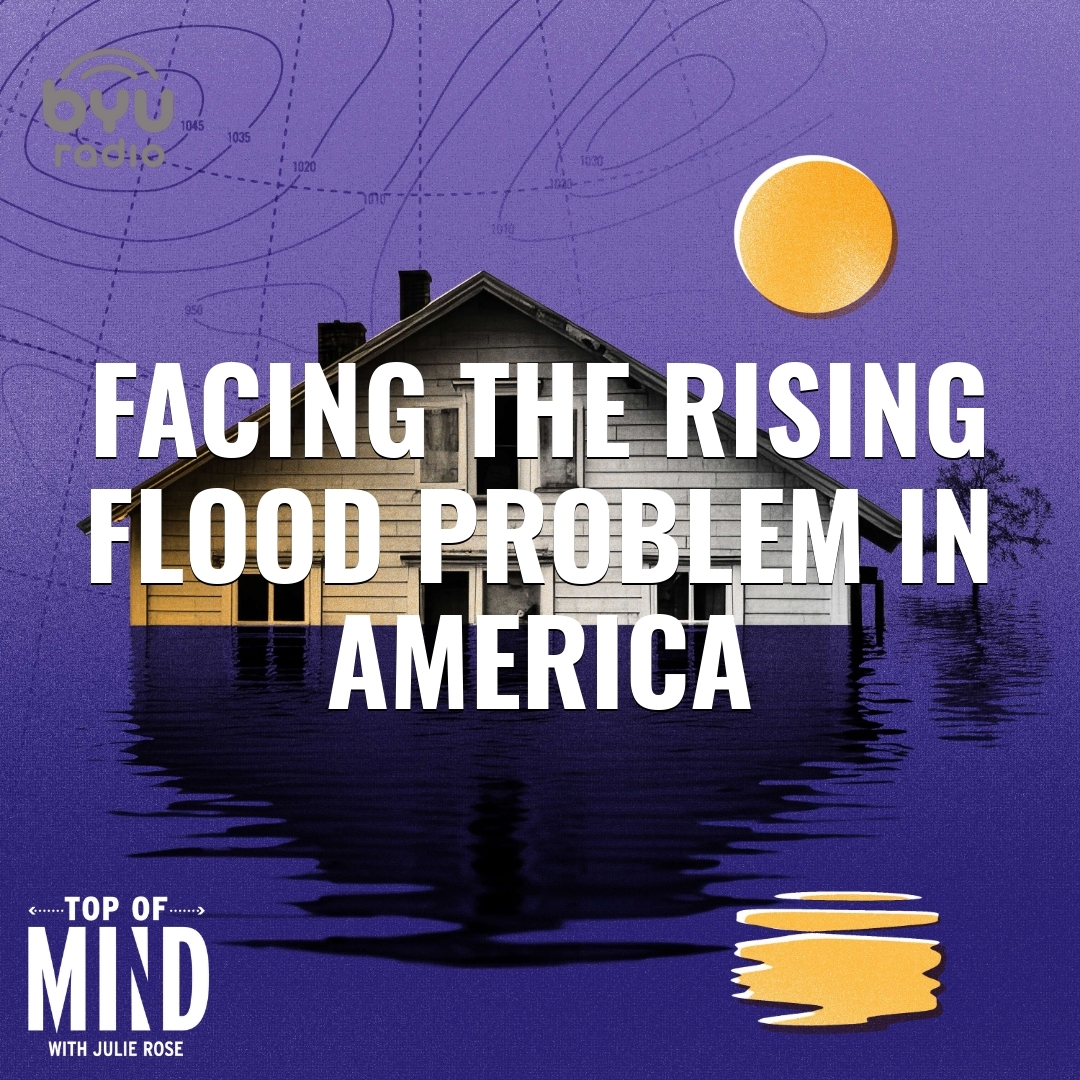
Floods are the most common of all weather-related disasters in America. They cause more damage and kill more people than any other type of severe weather. Flood risk is rising all over the country—rainstorms are more intense and flash floods are happening more frequently. The communities facing the greatest risk in the coming decades are disproportionately poor and Black. But here’s the thing: damage from flooding is the most preventable of all natural disasters: moving to higher ground is a proven solution to flood damage. But a lot of factors, like money, history and human nature, make relocation complicated. On this podcast episode, we explore why flooding is such a challenging problem and how cities are adapting. A climate scientist explains how warmer temperatures increase extreme flood risk (it’s the atmospheric sponge effect!) We’ll learn why America’s approach to preventing flooding has backfired and how Tulsa, Oklahoma has bucked the trend – going from one of the most flood prone cities in the country to one of the most flood resistant. And the mayor of an historic town settled by recently freed Black people will explain why relocating out of the flood zone isn’t a simple choice.
There are more people homeless in America today than at any other time in the last 17 years. Those numbers might have gotten a lot worse during the pandemic were it not for millions of dollars in federal funds for emergency housing. That money’s all dried up now. In the early 2000s, many of these cities adopted “10-year plans to end homelessness,” buoyed by a push from the White House. But that hasn’t happened. Ending homelessness in America feels impossible. Is It?
Nearly a dozen states have active campaigns to move away from partisan or closed primaries, motivated by a frustration among many voters that the way parties choose nominees in high-stakes elections is broken. By the time most of us cast a ballot in a Presidential Primary, it feels like a pointless exercise: earlier states have already winnowed the field to a clear front-runner. No wonder turnout for primary elections is so low!
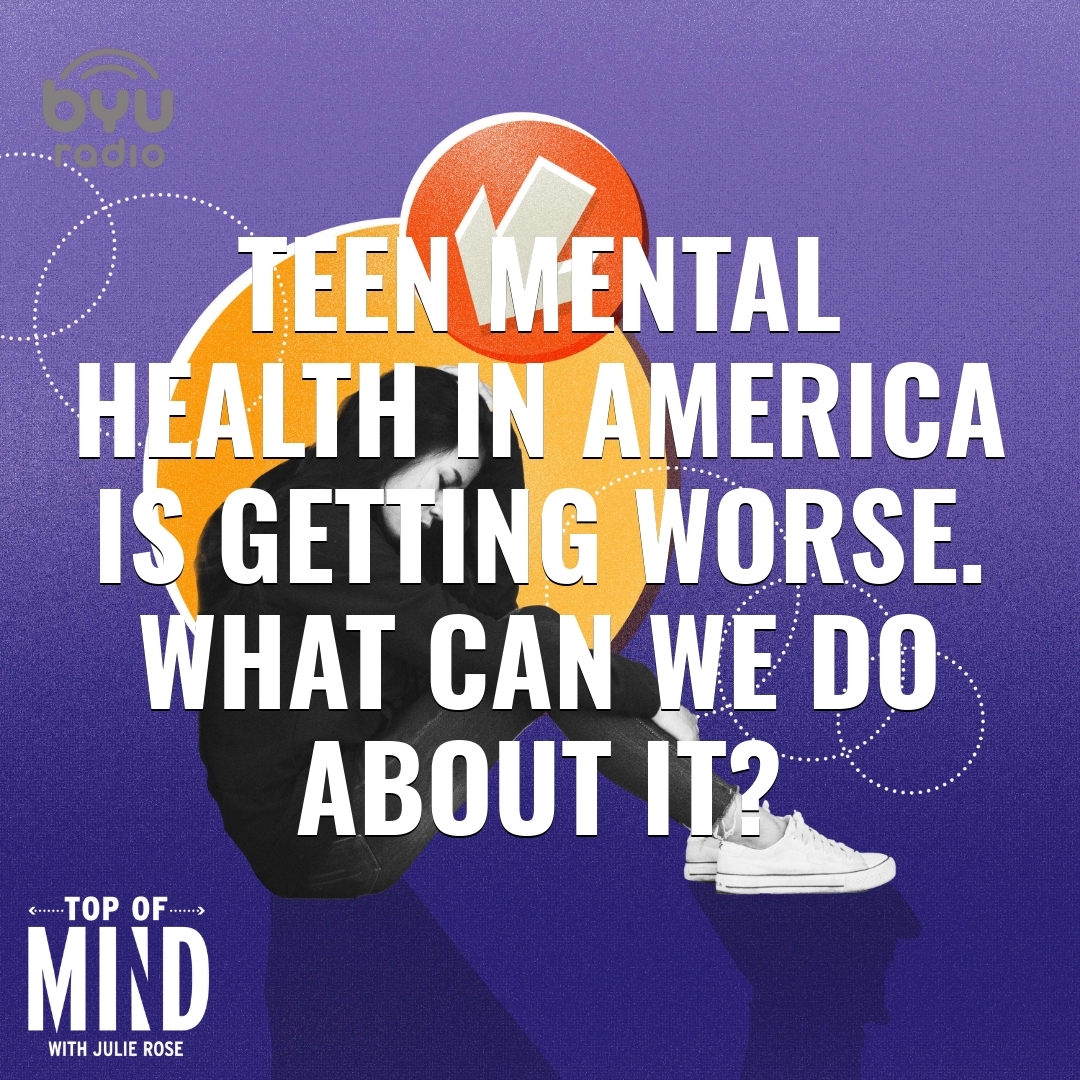
Overall mental health among Americans - young and old - took a nose-dive during the pandemic. But the trend among teens has been worrisome for at least a decade now. Starting around 2012, suicide overtook homicide as a leading cause of death among 15-19 year-olds. In the most recent big survey of high schoolers the CDC does every few years, a quarter of students said they'd seriously considered suicide. Nearly half reported feeling persistently sad or hopeless. One thing is clear: Teen mental health in America is getting worse. What can we do about it? Let's look at three areas for possible intervention for teens in crisis. A lot of doctors and families recognize that medication is often an effective part of mental health treatment. But others worry that we're too quick to jump to prescription medications - particularly for teens. We'll tackle the role of sleep: two-thirds of American teens are chronically sleep-deprived. We'll look at the effects of social media, which seems like an obvious culprit - but outright banning it could actually make things worse for some teens.
Our “Stick With It” series on the Top of Mind podcast continues with Karin Freeland, host of the podcast “Rock Your Reinvention” and author of the book “Grab Life By the Dreams.” Before Freeland was a life reinvention coach, she was a successful sales executive climbing the corporate ladder, buying designer bags and driving a Benz. And she was miserable. But she couldn’t bring herself to look at the real reasons why, until a series of deaths in the family. While in mourning, she was finally willing to openly and humbly consider why she was so unhappy with a life that included all the hallmarks of the American Dream – marriage, children, work and wealth. In this episode, Karin Freeland shares what she learned from that Stick With It moment and how it led to her new career as a life reinvention coach, author and podcaster.
Our “Stick With It” series on the Top of Mind podcast continues with a story from health coach Carolyn Cohen, host of the podcast “Wellness While Walking.” Cohen grew up with strict dietary rules that she eagerly rejected when she left home. In time, she and her children experienced health problems that caused Cohen to reconsider her approach to food and wellness. She embraced a healthier lifestyle and became a certified health coach to help others make small choices to improve their wellness.
After all her hard work and careful attention to wellness, Cohen was shocked and demoralized to get a diagnosis of pre-diabetes. In this Stick With It episode of the podcast, Cohen shares how – after a period of heavy denial – she mustered the humility and curiosity to learn what changes she needed to make for her health. By leaning into the discomfort of that moment, she gained new insights that improved her wellness and inspired her to create her own podcast called “Wellness While Walking.”
We’re being asked to tip more – and in more places – than ever before in America. And surveys show we’re annoyed and confused by “tipflation” and “tipcreep.” What are the rules in this new tipping culture? How much is expected when you’re ordering food at the counter and that screen pops up asking for a tip? What’s that money for? And is it okay not to tip in those cases?
The US is experiencing an unusual spike in union activity. Younger workers are organizing in workplaces that have not traditionally been unionized. Established unions are staging historic strikes and securing significant concessions from employers – including items beyond the traditional scope of labor negotiations. Public support for unions is at its highest level in nearly 60 years. So, organized labor is having a moment. Why? And what might it mean for the future of labor in America?
Our “Stick With It” series on the Top of Mind podcast continues with a story from one of our listeners, Heidi Thorpe. In 2022, she set out to better understand views that differ from her own on abortion and began reading the stories of women who’d chosen to end a pregnancy. Those stories took on new meaning when Thorpe found herself unintentionally pregnant and overwhelmed at the prospect of a fourth child. Finding empathy with those women was uncomfortable for Thorpe, but also led to a profound shift in how she thinks about the issue of abortion and what communities can do to support women facing unexpected – or unwanted – pregnancies.

